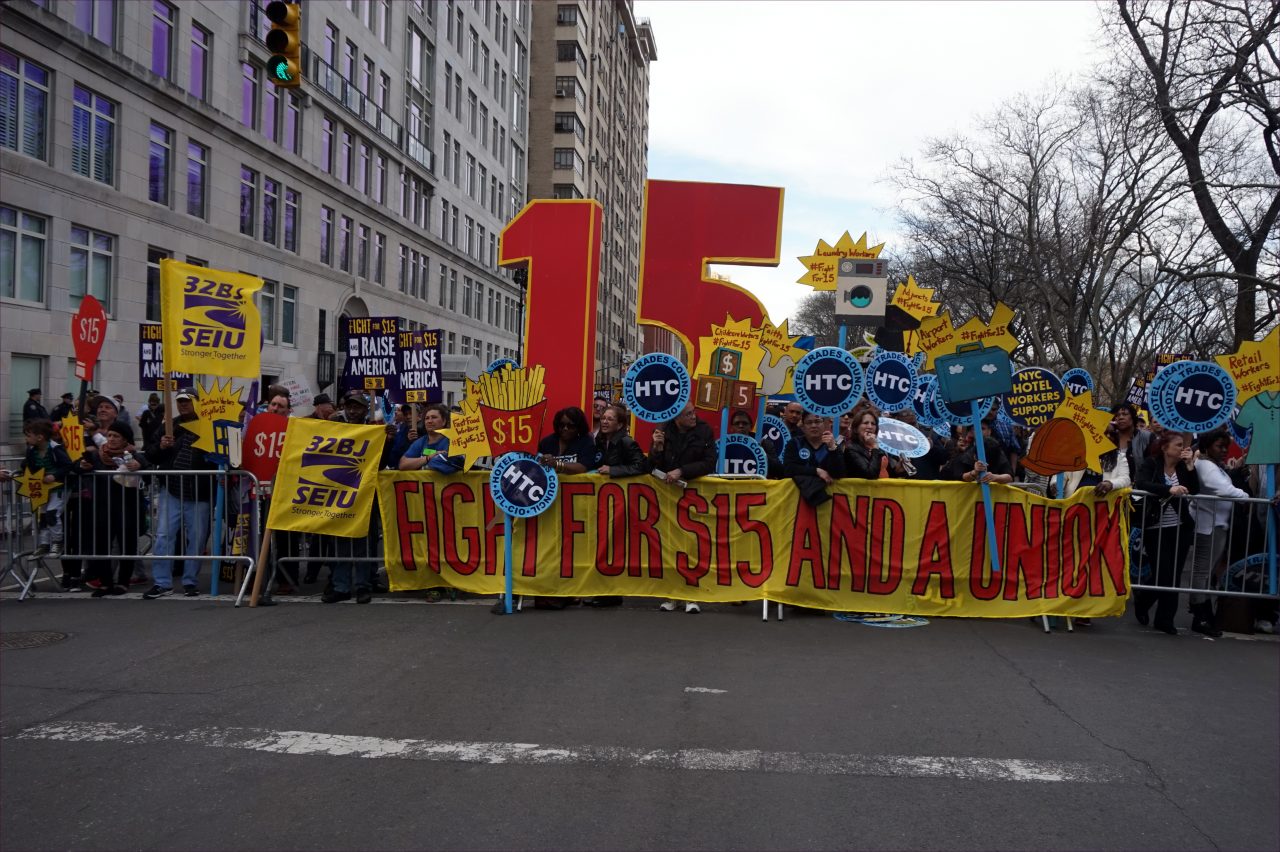
Have workers had enough of zero-hour contracts?
This year, on 4 September – US Labor Day, workers from two McDonald’s branches in the UK are going on strike.
Their strike coincides with the US Fight for $15 movement, a long-standing campaign to raise the minimum wage to $15 for fast food workers. But in the UK, it’s the first time McDonald’s workers have gone on strike since McDonald’s opened in 1974.
Like those striking in the US, the UK workers want better pay – they're asking for £10 an hour. But they also want McDonald's to formally recognise their union, and stop using zero-hours contracts.

What’s wrong with zero-hours contracts?
A zero hours contract means your boss doesn’t have to guarantee workers a specific number of hours a week. It’s common in jobs like hospitality, but have also been seen in more skilled work, like the health service. The system allows bosses to only pay staff when they’re needed, and – in theory – allows staff to work their hours around other commitments.
But it also leaves staff really vulnerable. There’s no guarantee of how many hours work you’ll get a week, which means you never know how much money you’ll get.
Ian Hodson, the BFAWU National Secretary, said that he’d heard of some striking McDonald’s workers who hadn’t been able to pay their rent because they didn’t get enough hours.
One of the arguments often used in favour of the contracts, he says, is that they’re mainly used by younger workers and students, who benefit from the flexibility. “[But] they’re not," Ian told us. "Most of the people we’re working with is are 22 or older. We’ve got some people going on strike in their 40s. It’s not a stepping stone to a future career. These zero-hours jobs are peoples' only option for employment."
“The reality is that the majority of the jobs in the UK are the service and food sector. There’s an awful lot of people that work in it. That’s why it’s so important.”
In the case of McDonald’s, Hodson says, the flexibility argument doesn’t really fly. Often, for example, workers will only find out their hours for the next week on a Sunday, which leaves them little choice. He said it’s made clear to workers that if they can’t make a shift, they won’t get any more hours. A guaranteed hours contract would mean that workers now when and how much they’re working at any given time.
McDonald’s says it had given people the option of getting rid of zero hours contracts, but that staff hadn’t taken up the offer – though the BFAWU said that hadn’t been communicated to people properly.
Since the strike was announced, said Hodson, McDonald’s has made a huge effort to advertise guaranteed contracts to its workers, and has said that it’s rolling guaranteed hours out. But it's too little too late.
A few years ago BFAWU fought against zero-hours contracts at Hovis, a bakery in the north of England and won. That was when the union turned its attention to fast food: “We recognised that it’s the fast food industry that’s been the driver behind a lot of these practices.
“McDonald’s was the first company to introduce zero-hours contracts in 1974. What we’re seeing now where they’re becoming increasingly common in schools, hospitals in government offices has come from the failure to recognise what was happening in the fast food industry.”
Can the strike really change anything?
But how can two branches – and a really small percentage of McDonald’s workers (according to McD’s themselves it’s about 0.01%) – change things for everyone? Hodson’s convinced it can: “What the strike will do,” he said, “is give media coverage to the exploitative practices that are being carried out in the UK today.”
“People working in the fast food industry are looking at this now and saying, ‘Well actually, we should be being treated with dignity and respect in the workplace. We shouldn’t be bullied. We shouldn’t have to hope we’re going to get some hours at work’.”



